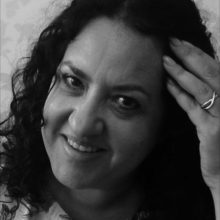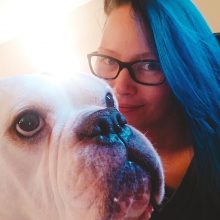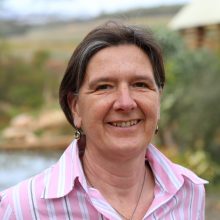Scabby Queen by Kirstin Innes
What led you into writing?
I’ve always written. I was a big reader as a kid and teen and it never occurred to me not to write down my own stories too. English was by far and away my best subject at school and I went on to study literature at university, spent long bus journeys down from Aberdeen, where I studied, writing stories inspired by overhead snippets of conversation or interactions between the other passengers. I didn’t show too many people, though – I’ve never been part of a creative writing club or anything. It took me years and years to build up the confidence to let other people read what I was doing (I was in my mid 20s; had been working writing-adjacent day jobs in journalism and PR) – when I did, a pal mentioned the Scottish Book Trust New Writers Awards, which were launching that year, and suggested I apply – and I was one of the winners. That was a big turning point for me – even just building up the confidence to apply meant that I had to start admitting I was a writer outside of my own head. They also gave me support, industry advice, mentoring, and crucially, enough money to take a month’s unpaid leave from work and rent a wee cottage in a housing estate on Orkney with no internet, to just be by myself writing and see if I could make anything of it. Writing needs time and time needs money; my whole professional life since has been reconfigured into freelance jobs I can do short-term to earn (just) enough money to fund a few weeks of unpaid writing.
How does a typical day look?
I have two very young children, so I’m probably up before 6, dispensing Weetabix and CBeebies. When Hey Duggee comes on I can usually grab about six minutes to answer outstanding emails from the day before, as that’s one of the only shows that will distract both of them at once. My partner gets up a couple of hours later as at the moment he’s the one up in the night with our grumpy toddler; it’s probably about 10am before either of us can start work – this is assuming we’re in a pre-lockdown state and actually have childcare. We’re both writers so we understand the need to create space for the other one to work – during lockdown one of us has been taking the children out while the other grabs a few hours of work; back in the Old Times, we used to work 9-3 while the kids were at nursery or with their granny, one of us writing in the house and the other in our village’s local café, the library, the pub or a community workshop space just up the road. These are all temporary measures while the kids are so young – it’s obviously not ideal, but I have become very adept at making the most of the limited work time I have. Writers’ block feels like a very distant luxury these days. I’m in unusual circumstances at the moment in that I’m actually – for the very first time – managing to survive solely on writing income at the moment. I have two plays, a screenplay treatment, a short story and a non-fiction book on the go just now. Most of the time, though, I balance writing days with “working days”, taking on a variety of small scale arts PR jobs to make ends meet. Evening writing doesn’t happen – by the time the kids are in bed I’m too tired to work like that.
In what ways do your characters test your abilities?
Ach, I need them to feel like real people. Something that always pulls me out of a book is characters who exist as plot devices (even though Muriel Spark is one of my writing heroes and arguably all of her characters would fit that description). I need to be able to understand their motivations and emotions, even if I don’t like them. Especially if I don’t like them.
What’s your setup?

I share a desk with my partner in an office hastily-coverted from our eldest kid’s tiny bedroom at the start of lockdown, so there are still glow-in-the-dark planet stickers over the door. We’ve had this desk for yeeeeears – bought it in a junk market near Partick Station in Glasgow. It feels very grand – this is the first proper use it’s had for a while though, as it’s been hidden behind piles of stuff and a cot in our former spare room since we moved here. Plants are mine, classic rock paraphernalia his, the picture above the desk is one that the artist Jenny Soep did of us back in our live literature performance days (it’s dated 2009) and the wee green guy holding the pens came back with us from the Elqui Valley in Chile, back in the days when we used to go places.
What lasting effects have your favourite authors had on your writing and style?
The authors I always cite are Muriel Spark and Janice Galloway; Spark because she taught me how to play with time, how the authorial voice can jump about across the characters’ whole lives, concertina decades together to find a point; Galloway because she made high art (I don’t think that’s too strong a term here; The Trick Is To Keep Breathing is emotionally and intellectually on a par with opera in the terms of the impact it makes) out of the everyday stuff of ordinary female life. Biscuits on a tray for a social worker, the silly pressures of women’s magazines – these things were not supposed to be the stuff of experimental literature until she did that. She’s also the queen of the tiny moment, the thing unsaid. I love the tiny little beats underscoring her characters’ interactions.
For my new book, Scabby Queen, though, I’m also thinking about all the books with multiple narrative voices that I love. I’ve always been attracted to multifaceted storytelling. Armistead Maupin’s Tales of the City series, with the story portioned out to a different point of view character in each chapter – that’s definitely fed in here. Jeanette Winterston’s Sexing the Cherry is also like that; it approaches history (and women’s lack of place in it) from multiple points of view, intercutting those with fairytale and myth. I read that one a lot as a teenager, and its influence is definitely evident in my work today – to tell this particular story (about historical events of the past fifty years), I used over 20 different point-of-view characters plus a pastiche of various media – news clippings, obituaries, radio transcripts, music journalism and opinion columns.
What do you do for inspiration?
I go for walks. I’m very lucky to live in a small village in the middle of a country park; ten minutes from my house and I can be by a loch or in a wood. I need to see big unbroken expanses of sky and water if I’m stuck – it helps me think bigger. The very opposite of Twitter, all those tiny little angry soundbite-wasps. We moved here partly because of that – living in the city we both found we were always trying to get away to bothies in open spaces to get any real amounts of work done.
What repeating themes do you find yourself pulling into your stories?
Injustice? That sounds very grand, but I do always seem to be writing about tensions between the powerful and less powerful. Perhaps empathy. Empathy is fundamental. Oh, again, very grand! Get me! What I mean is I’m not a fan of throwaway caricature characters – even my antagonists need to be properly rounded, real-feeling people. I’m always interested in humans, weird wee beings we are, and the tiny little interactions that say so much about what makes us. My current book is being touted as a political novel, my first was to an extent too, and they both are, but it’s politics through a micro-lens; it always comes down to those tiny little interactions.
How do you wind down?
Switching the internet off, going on adventures in the woods with my family, and since lockdown kicked in I’ve got properly into interior decorating on a tiny budget. I’m really enjoying spending an evening painting the living room, the radiators, or an old bit of furniture I’ve got free off the local Facebook exchange group. It’s been quite exciting discovering a way of being creative that doesn’t involve screens and typing. Also really lucky to have an awesome, supportive group of pals living nearby – recently we’ve been rigging tarps in our gardens and having a drink underneath in the evenings while the rain splooshes about. All this is assuming it hasn’t been a particularly difficult day with the kids, in which case the fella and I will manage an hour of exhausted removing playdoh from rugs and pen from walls before flopping on the sofa to watch Succession, I May Destroy You, or if particularly knackered, an episode of Parks & Rec we’ve seen umpteen times before. Actually, let’s say mostly the latter.
What sort of challenges do you regularly overcome while world-building?
I’m not a numbers person at all, but my fictional worlds have got to make mathematical sense. It’s my pet hate, when I’m reading a novel and the character’s ages or years don’t add up – pulls me right out of it. I’m also a really irritating person to sit beside if you’re watching a film or long-running tv series with continuity errors – my fella rolls his eyes and calls me Continuity Jones. As I mentioned, my new book takes place over fifty years, and I had so many charts on the go to make sure that the various dates and ages added up correctly.
What are you reading at the moment?
David Keenan’s This Is Memorial Device (shamefully, finally) and Brit Bennett’s The Vanishing Half. Both are blimming excellent so far. I used to be a very fast, prolific reader and I’m really looking forward to that coming back when the kids are a bit more independent. Oh crikey, this whole interview is just basically “SMALL CHILDREN ARE DIFFICULT”, isn’t it?
What’s the most useful advice you could give to an aspiring author?
SWITCH THE INTERNET OFF. In fact, block it. I use a blocker called Freedom, which you can set in advance, because Past Kirstin is much more trustworthy than Present Moment Kirstin, but there are loads of others out there. Seriously, the internet is no good for any sort of sustained piece of work; it will always lure you down tunnels of nothing with its siren calls of celebrity gossip or clickbait outrage. Switch it off. Block it. You don’t need to know who’s fighting who on Twitter for the next two hours. You’ll thank me for this.
Another good one is taking the content away from the computer. Get some coloured pens and an A2 pad and draw diagrams, or spider charts, or do some working out. Stick post-its on a bit of wall. It helps get a sense of the size of the universe you’re creating if you can take it outside of your wee lighty-up box and let it grow in different forms from black words-on-white screen.
Tell us about the book you’re promoting.
Scabby Queen is the story of the last five decades as one woman lived them. Clio Campbell had a one-hit-wonder with a protest pop song at the height of the Poll Tax riots; she then lived her life in activism and music, until her suicide, which opens the book. As mentioned, the story is told from the many, many different points of view of people who met her along the way; parents, lovers, chance encounters, fellow activists, old friends, exes; and also through media cuttings relating to her life and career. It goes from the miners’ strikes to Brexit, stopping off at a squat in Brixton, a Greek yoga retreat, Britpop-era Camden, the Scottish Independence referendum, the Genoa G8 protests and Top of the Pops along the way. It’s a great big beast of a book, but I absolutely love it, and I’m really really proud of it. I deliberately wrote it so you never hear from Clio’s point of view; the idea is to examine a person as others see her. Ooh, and if it’s your thing I highly recommend the audiobook – it’s read by Cathleen McCarron, who has done some really beautiful, nuanced work differentiating between the voices of the 89324892 (approx.) characters I wrote…
👋 Hi! I run Author Interviews
As a new writer I found myself itching to contribute to a thriving, creative community, so I made Author Interviews and I've met loads of wonderful people in the process. You can buy my debut fantasy RINGLANDER: THE PATH AND THE WAY from Amazon.
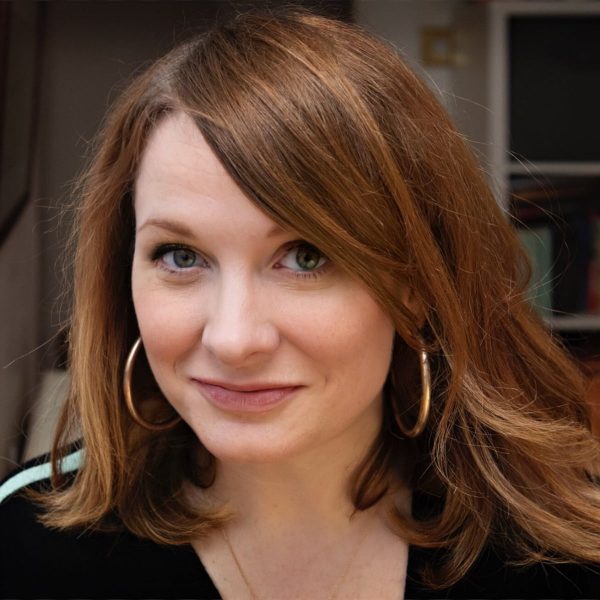
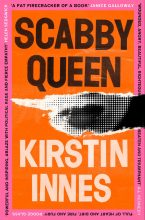
 Audible
Audible